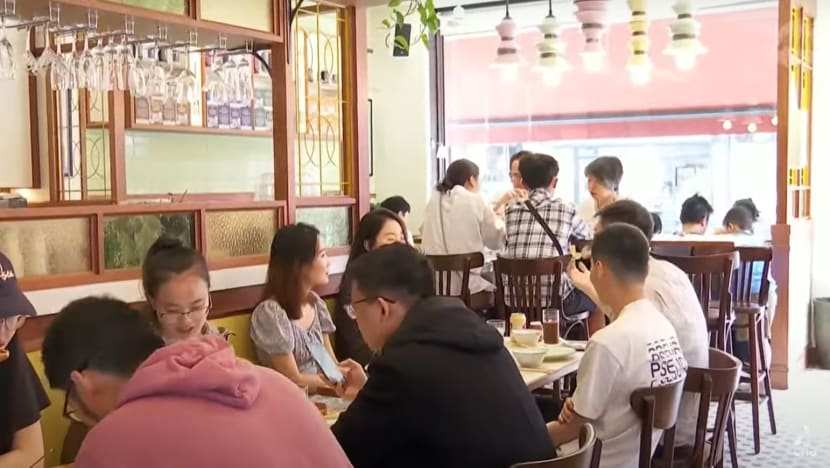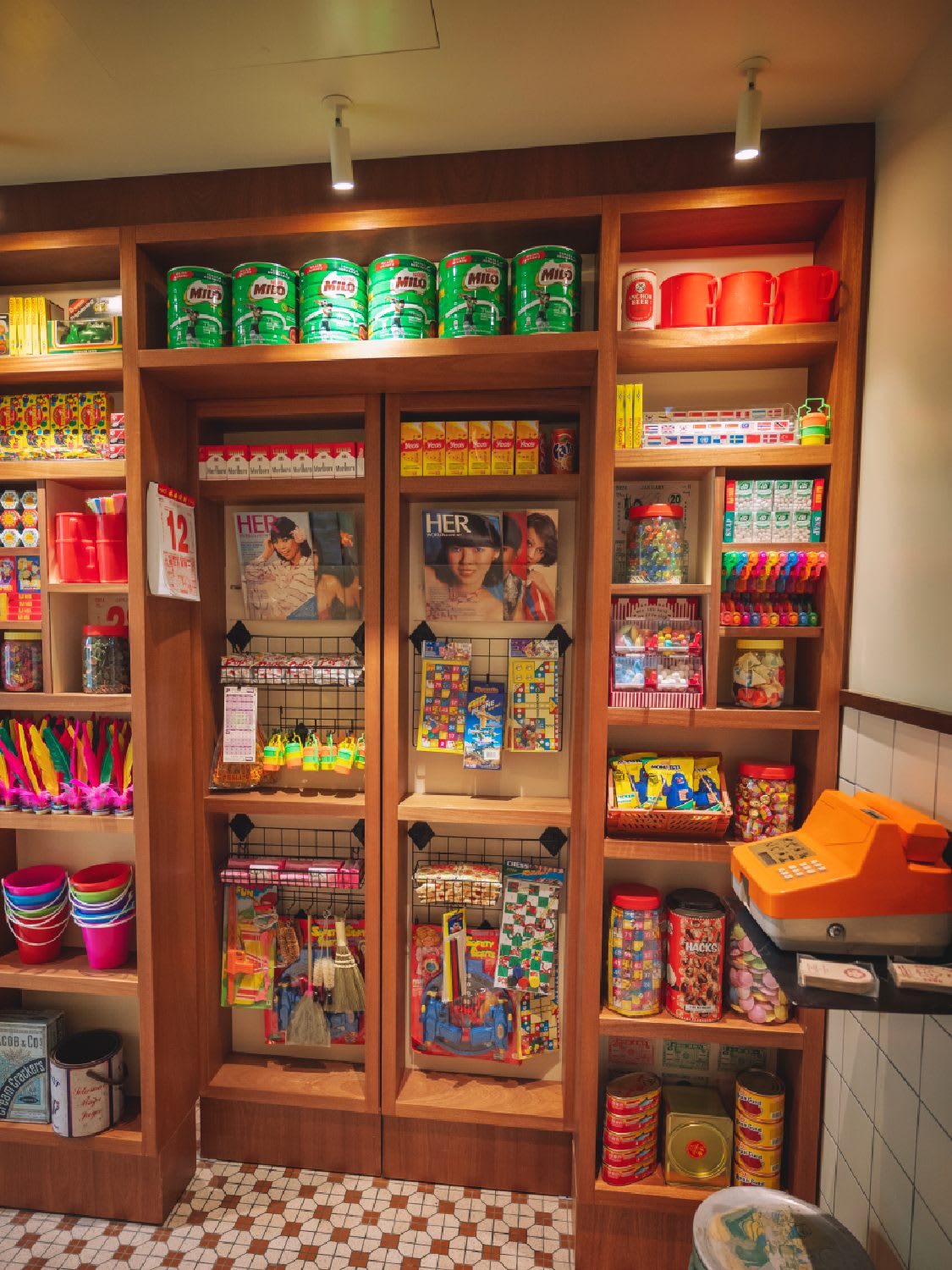Opportunities abound for Singapore F&B brands in London, despite supply chain challenges

Singapulah, a 100-seat restaurant at Shaftesbury Avenue in London.
LONDON: Enterprise Singapore (EnterpriseSG) is seeing growing opportunities for Singaporean companies in Britain's food and beverage industry.
This comes as food exports from Singapore to the UK have gone up by 10 per cent annually between 2013 and last year, despite a rise in shipping costs putting a dent on operations.
Observers said the Singaporean flavour remains a strong crowd-puller, even in trying times.
COPING WITH HIGHER COSTS
Some F&B firms in London, for instance, are adapting to the demand.
At Singapulah, a 100-seat restaurant at Shaftesbury Avenue in Soho, this involves importing ingredients under the right conditions into London and managing higher shipping costs.
“The restaurant was overwhelmed when we first started, and this was opened in February and just after Chinese New Year. It was cold, so I wasn't expecting the long queues,” said Singapulah owner Ellen Chew.
“People were queuing in the cold and proved me wrong, so it was a good problem to deal with,” she added.
Singapulah's highlight is a six-month rotational menu featuring imported ingredients.
The design of the three-floor venue also incorporates elements of Singapore, such as void deck convenience stores and a chessboard table commonly found at the void decks of older HDB flats.

Despite its popularity, the restaurant has had to cope with supply chain issues.
“We didn’t expect this kind of crowd, so naturally we had enough (ingredients) for a couple of months, but then it actually diminishes faster than we thought,” said Ms Chew.
“So this is one of the big challenges, because you have to think about how you are going to bring in the products in the quickest way.”
The high shipping costs also poses a challenge, she added.
“It has gone up threefold, so what we plan to do to mitigate this problem is we actually have to bring in some by air,” said Ms Chew.
“Because it's almost on par now - shipping and air prices. So these are the things that we think about to lessen the cost.”
PLANNING AHEAD
Homegrown brand Old Chang Kee, which has two locations in London and brings in its main ingredients from Singapore, faces the same problem.
When shipping time almost doubled, it started looking for ways to store ingredients for longer.
“We have to plan a lot more in advance. We have to store a lot more, so it’s changed the way we buy and the way we organise our stock,” said Ms Sandra Leong, director of Old Chang Kee UK.
“We also have access to a centralised kitchen now, and that allows us to store more goods. So we don't have to - or we try not to - ship so frequently because of the delays and the cost.”
Revenue has increased by 20 per cent on year in its last financial year, which ended in March.
“Singaporean food is very much on the up,” said Ms Leong.
“For us to tell people about our food, we also need to educate them about Singapore; where we are; the kind of cultures that influence our cuisine, and that’s an education piece that has to be done.”
Over the years, Old Chang Kee has built up a diverse customer base in the UK, she noted.
“I think we have something for everyone, and we have made Singaporean food quite accessible,” she added.
“We have lots of locals who live and work around us, tourists, students, everyone really, and they don’t really have to have a connection with Singapore.
“They just know that they can come and have a nice, piping hot curry puff, curry and rice, nasi lemak, laksa - something that is just convenient and satisfying.”

No comments
Share your thoughts! Tell us your name and class for a gift (: